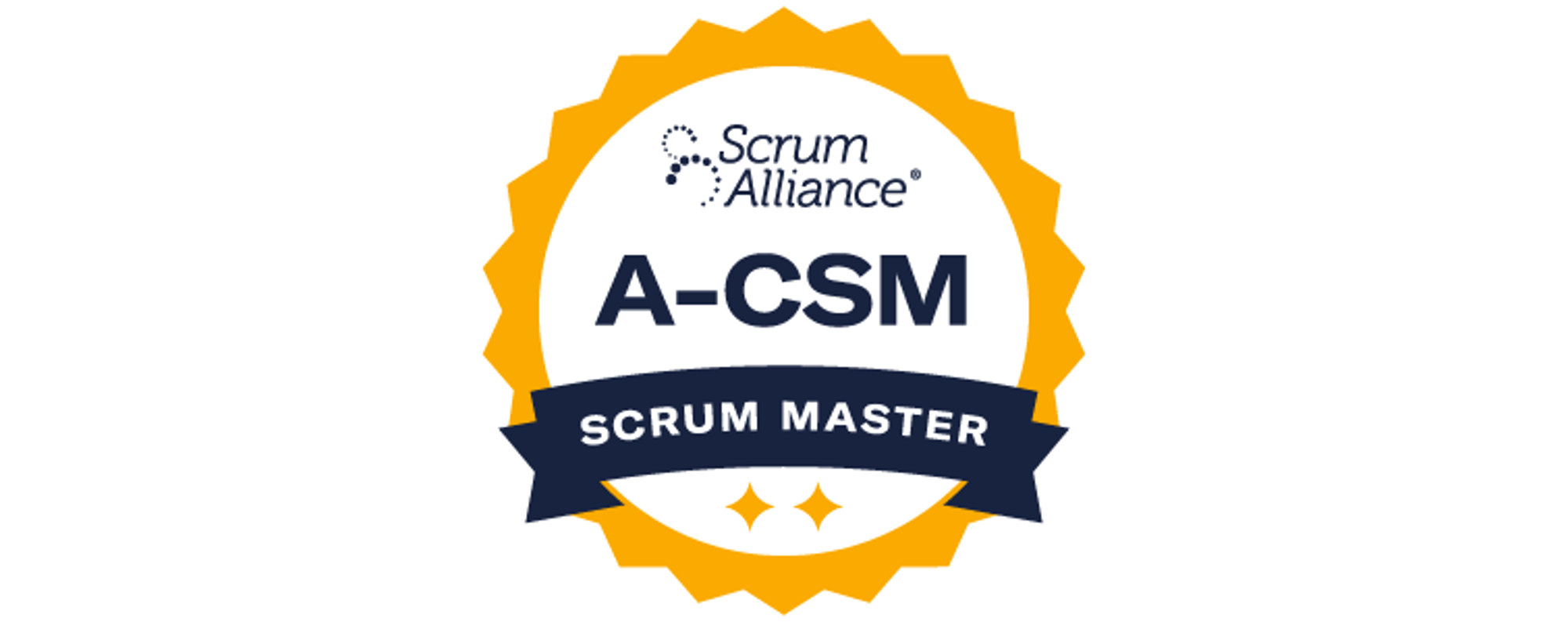Advanced Certified Scrum Master (A-CSM)

Agile & Digital Innovation Training
2 Full Days
Course description
This workshop introduces you to coaching, facilitation and change management techniques that will help Scrum Masters challenge the status quo and transform the world of work. You will earn the Advanced-Certified ScrumMaster (A-CSM) designation awarded by the Scrum Alliance; the most widely recognised network of agile software development professionals in the world.
The immersive online experience will give you hands on practice with facilitation tools, coaching techniques and insights into change management. While the foundation level CSM gives you a deep understanding of the Scrum framework itself, this course will develop your skills as a Scrum Master in techniques that you can deploy within and on top of the Scrum Framework. You will leverage the experience you have gained in the minimum of one year of practice of Scrum or one years since your CSM was achieved.
Course requirements
We know that you want an equally immersive experience online as we would have in a physical classroom. So do we. Our virtual courses offer the same expert-led, hands-on experience as always — this form of training has allowed us to introduce new types of engagement that would only be possible in a distributed and online learning environment.
For participants in order to be qualified for an official A-CSM certificate from Scrum Alliance, they should:
- Hold a CSM certificate from Scrum Alliance.
- Attend the official training successfully.
- Validate at least 12 months of work experience specific to the role of Scrum Master within the past five years. This can be met before or after attending the course. Work experience is entered and validated on your Scrum Alliance account.
Course teachers
Abid Quereshi
For over 22 years Abid Quereshi has helped over 50 organisations in 15 countries increase business agility. The insights he brings to the classroom are based on direct experience in developing, testing, specifying and tracking on real software projects. The Scrum Alliance recognises Abid as one of only 7 Certified Enterprise Coaches (CEC) in the UK who have demonstrated coaching success across enterprises from the executive level to delivery teams.

Abid Quereshi
Course Plan
| Section 01 Drive consensus with multiple stakeholders | |
| Section 02 Leverage various stances as coach, teacher, facilitator and mentor | |
| Section 03 Improve collaboration between users and developers | |
| Section 04 Use empirical process control and the scientific method for decision-making | |
| Section 05 Coach individuals and help them arrive at new insights about themselves |